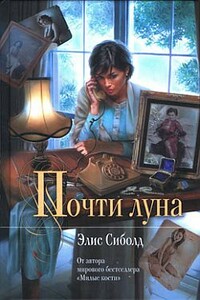“They came to accuse Ray,” she said. “I wasn’t concerned with how they felt about me.”
“I imagine it’s been hard for him,” my father said.
“No, I won’t allow that,” she said sternly and placed her cup back on the tray. “You cannot have sympathy for Ray or for us.”
My father tried to stutter out a protest.
She placed her hand in the air. “You have lost a daughter and come here for some purpose. I will allow you that and that only, but trying to understand our lives, no.”
“I didn’t mean to offend,” he said. “I only…”
Again, the hand up.
“Ray will be home in twenty minutes. I will talk to him first and prepare him, then you may talk to my son about your daughter.”
“What did I say?”
“I like that we don’t have much furniture. It allows me to think that someday we might pack up and leave.”
“I hope you’ll stay,” my father said. He said it because he had been trained to be polite from an early age, a training he passed on to me, but he also said it because part of him wanted more of her, this cold woman who was not exactly cold, this rock who was not stone.
“With all gentleness,” she said, “you don’t even know me. We’ll wait together for Ray.”
My father had left our house in the midst of a fight between Lindsey and my mother. My mother was trying to get Lindsey to go with her to the Y to swim. Without thinking, Lindsey had blared, “I’d rather die!” at the top of her lungs. My father watched as my mother froze, then burst, fleeing to their bedroom to wail behind the door. He quietly tucked his notebook in his jacket pocket, took the car keys off the hook by the back door, and snuck out.
In those first two months my mother and father moved in opposite directions from each other. One stayed in, the other went out. My father fell asleep in his den in the green chair, and when he woke he crept carefully into the bedroom and slid into bed. If my mother had most of the sheets he would lie without them, his body curled up tight, ready to spring at a moment’s notice, ready for anything.
“I know who killed her,” he heard himself say to Ruana Singh.
“Have you told the police?”
“Yes.”
“What do they say?”
“They say that for now there is nothing but my suspicion to link him to the crime.”
“A father’s suspicion…” she began.
“Is as powerful as a mother’s intuition.”
This time there were teeth in her smile.
“He lives in the neighborhood.”
“What are you doing?”
“I’m investigating all leads,” my father said, knowing how it sounded as he said it.
“And my son…”
“Is a lead.”
“Perhaps the other man frightens you too much.”
“But I have to do something,” he protested.
“Here we are again, Mr. Salmon,” she said. “You misinterpret me. I am not saying you are doing the wrong thing by coming here. It is the right thing in its way. You want to find something soft, something warm in all this. Your searching led you here. That’s a good thing. I am only concerned that it be good, too, for my son.”
“I mean no harm.”
“What is the man’s name?”
“George Harvey.” It was the first time he’d said it aloud to anyone but Len Fenerman.
She paused and stood. Turning her back to him, she walked over to first one window and then the other and drew the curtains back. It was the after-school light that she loved. She watched for Ray as he walked up the road.
“Ray will come now. I will go to meet him. If you’ll excuse me I need to put on my coat and boots.” She paused. “Mr. Salmon,” she said, “I would do exactly what you are doing: I would talk to everyone I needed to, I would not tell too many people his name. When I was sure,” she said, “I would find a quiet way, and I would kill him.”
He could hear her in the hallway, the metal clank of hangers as she got her coat. A few minutes later the door was opened and closed. A cold breeze came in from the outside and then out on the road he could see a mother greet her son. Neither of them smiled. Their heads bent low. Their mouths moved. Ray took in the fact that my father was waiting for him inside his home.
At first my mother and I thought it was just the obvious that marked Len Fenerman as different from the rest of the force. He was smaller than the hulking uniforms who frequently accompanied him. Then there were the less obvious traits too – the way he often seemed to be thinking to himself, how he wasn’t much for joking or trying to be anything but serious when he talked about me and the circumstances of the case. But, talking with my mother, Len Fenerman had shown himself for what he was: an optimist. He believed my killer would be caught.







